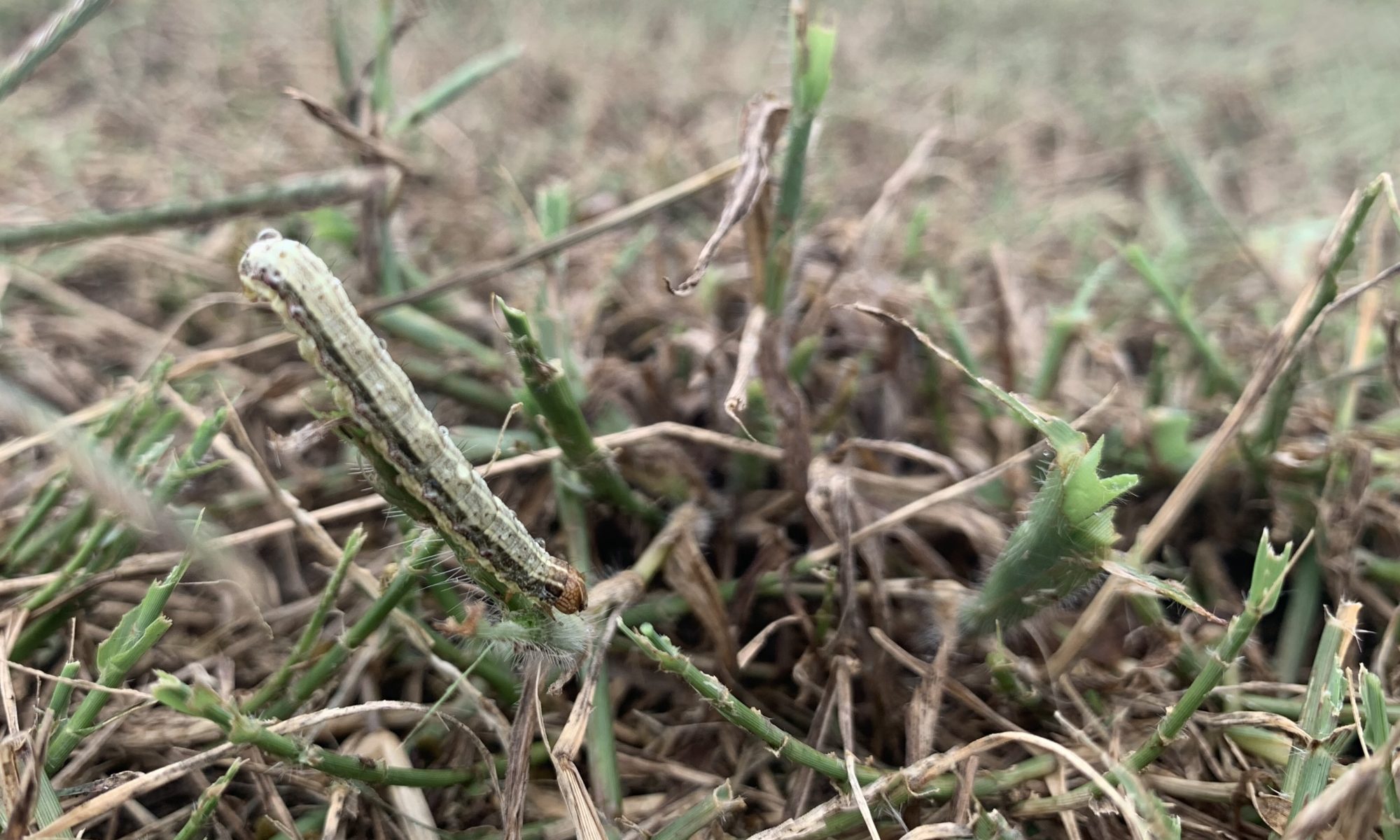
UT Entomologist Provides Tips on Defeating the Small, but Mighty, Pest
JACKSON, Tenn. – If you look at your grass closely right now, you might see the blades moving. That is not just the breeze — it’s a caterpillar known as the fall armyworm.
“This year has been an unusual year. They’re worse than anybody I’ve talked with can remember,” said Scott Stewart, entomologist with the University of Tennessee Institute of Agriculture.
The armyworm is the caterpillar of the fall armyworm moth. It feeds primarily on grass, fresh sod, hay fields and other summer and fall crops. However, you may see the most problems with Bermudagrass and pastures. An armyworm’s life span is about twelve days, with the last couple of days being the period where armyworms eat the most. Quickly, they turn lawns brown and patchy.
Stewart says the armyworms may leave your yard when the food runs out. However, your yard will stay brown for quite a few days before it regenerates, and you could see the armyworms pop up a second time. If you want to eliminate the pest before that happens, you’ll need to invest in an insecticide. Those can be found at most home improvement stores or garden centers.
“Unfortunately, you may have to make more than one insecticide application when they are as prevalent as right now,” Stewart said, “However, insecticides are very safe and effective if you use them according to the label. There are several options, so you might want to get suggestions from your local garden center or county Extension agent. The other option is to let them eat. Your yard may not look too good for a little while, but a healthy, established lawn will recover.”
Through its land-grant mission of research, teaching and extension, the University of Tennessee Institute of Agriculture touches lives and provides Real. Life. Solutions. utia.tennessee.edu.